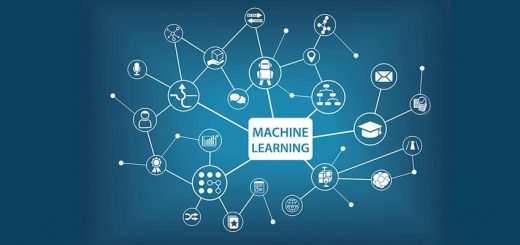Applications of Artificial intelligence marketing, How ai is changing marketing and advertising
Artificial intelligence can help marketers make the most relevant product or content suggestions based on their past browsing, purchase, or viewing activity, Artificial intelligence can be used to achieve Audience targeting & segmentation, Drawing on the data that marketers have about their customers, machine learning algorithms can be used to identify important variables and common properties, and pick out incorrectly identified contacts.
Artificial intelligence marketing
Artificial intelligence helps marketers take them a step further for deeper insight & analysis, It can tap into the abundance of consumer data hidden in keyword searches, social profiles & other online data, AI helps marketers know exactly what consumers are thinking, saying & feeling about the brand in real-time, marketers can understand what customers are feeling.
Marketers can use AI solutions to take profiles a step further, refine marketing campaigns, and create highly personalized content, Data can help feed consumer profiles, AI solutions offer a deeper knowledge of consumers and prospective clients, Marketing becomes an increasingly data-driven discipline, and more effective use of data is the key to improving customer experience, personalization, targeting and more.
AI in the workplace can take on complex organizational & analysis tasks that would be difficult or impossible for humans to carry out, freeing up humans to do more intuitive, creative work that they are better suited to, Artificial intelligence can be used to improve account selection in account-based marketing when ABM is carried out at scale.
AI has had a profound impact on the way that we search & the quality of the search experience, There are many innovations such as natural language processing and semantic search, search engines can determine the links between products and suggest similar items, find relevant search results, and auto-correct mistakes, helping consumers to discover products if they don’t know exactly what they’re looking for.
Applications of Artificial intelligence
Applications of Artificial Intelligence in marketing such as AI-generated content, Smart content creation, Voice search, Programmatic media buying, propensity modeling, Predictiveness analysis, Lead scoring, Ad targeting, Dynamic Pricing, Web and App personalization, Chatbots, Re-targeting, Predictive customer service and Marketing automation.
Visual search comes with many applications in marketing & retail, it can be used to improve merchandising and personalize shopping experience, Image recognition provides marketers with an edge on social media by allowing them to find uses for brand products & logos, and identify visual trends, This is called ‘visual social listening’, and it can allow brands to spot where & how customers are interacting with their brand, logo or product when it’s not referred to by name.
Advances in natural language processing are useful for marketers wanting to analyze their brand presence, and the conversations around their brand, on social media and use those to target campaigns, Artificial intelligence allows brands to perform sentiment analysis on social conversations and understand the prevailing attitude towards their brand & products, It can allow them to spot potential issues and counteract them before they become too widespread.
Predictive analytics is the practice of extracting information from data sets to predict future trends, It can be used in improving customer service and customer experience, It can be used in eCommerce to analyze customers’ purchase behaviour & determine when they might be likely to make a repeat purchase or to purchase something new, With artificial intelligence, things that could once only be determined retroactively can be reliably modeled, and decisions made based on those models.
Social listening & sentiment analysis can be used to spot purchase intent by analyzing the ways that consumers are talking about a product, Artificial intelligence has made bidding on and targeting programmatic advertising vastly more efficient, this is tied into predictive analytics and the ability to model things that could previously only be determined retroactively.
When applied to programmatic advertising, AI can determine things like the best time of day to serve an ad, the probability of an impression converting, or the likelihood of a user engaging with an ad that appears in the middle of an article they are reading, AI can be used to adjust bidding strategies based on customer lifetime value (CLV) and invest more in potentially higher-value customers.
Artificial intelligence can forecast sales outcomes and help companies to inform business decisions and predict short and long-term performance by using past sales data, industry-wide comparisons and economic trends.
Sales forecasts can help to estimate product demand, although sales teams should be careful to take other factors into account as well, a company experiencing manufacturing issues may only sell a certain number of units due to a lack of stock, not due to a lack of demand for the product, So, using only sales figures to predict demand would produce an inaccurate forecast.
Voice-activated devices & their potential have become the talk of the marketing industry, While speech recognition is only one component of a good voice experience, it plays an important role in making sure that voice interfaces and voice interactions function smoothly, and that users’ requests are interpreted correctly.
Computer vision is a discipline that involves programming computers to see the world around them and gain a high level of understanding from digital images & videos, Accurate computer vision is important for the sophisticated development of augmented reality (AR), and for its applications in marketing.
The better computers can detect & identify the physical world, the more accurately & usefully augmented reality can be overlaid on top of it, This enables AR advertising that integrates with people’s surroundings in a way that is relevant without being intrusive and can open up new possibilities for things like interactive shopping, product insights and offers, and business information.
Artificial Intelligence allows marketers to adopt a data-driven approach to make predictive sense of their digital customers’ diverse behaviours across channels and devices, By analyzing historical browsing and transactional patterns, marketers can identify relevant customer segments.
These segments can be targeted with laser-focused personalized & contextualized content through appropriate communication channels, such as emails, browser push notifications, app push notifications, or in-app messages, to nudge them along their journey towards conversion.
In the context of e-commerce, advanced analytics allows marketers to identify a customer segment that reacts favourably to price drop sales, AI can help target micro-segments with the right campaign content based on previous products viewed, items added to cart, or purchased.
Marketers need to target the right audiences at the right time, AI allows marketers to identify customer segments that respond to a particular campaign at specific times based on historical behaviour, Over some time, the system establishes a degree of predictability around the customers’ reactions and this learning input is fed back into campaign intelligence.
Leveraging the power of AI, marketers can add another dimension of relevance to their multi-channel communication by delivering these campaigns when different customer segments are most likely to respond and act.
Artificial intelligence marketing (AI Marketing) importance, features & Chatbots
Online marketing uses, advantages and disadvantages
Benefits & application of Artificial intelligence in business, E-commerce & marketing
E-Commerce (Electronic Commerce) advantages and disadvantages



